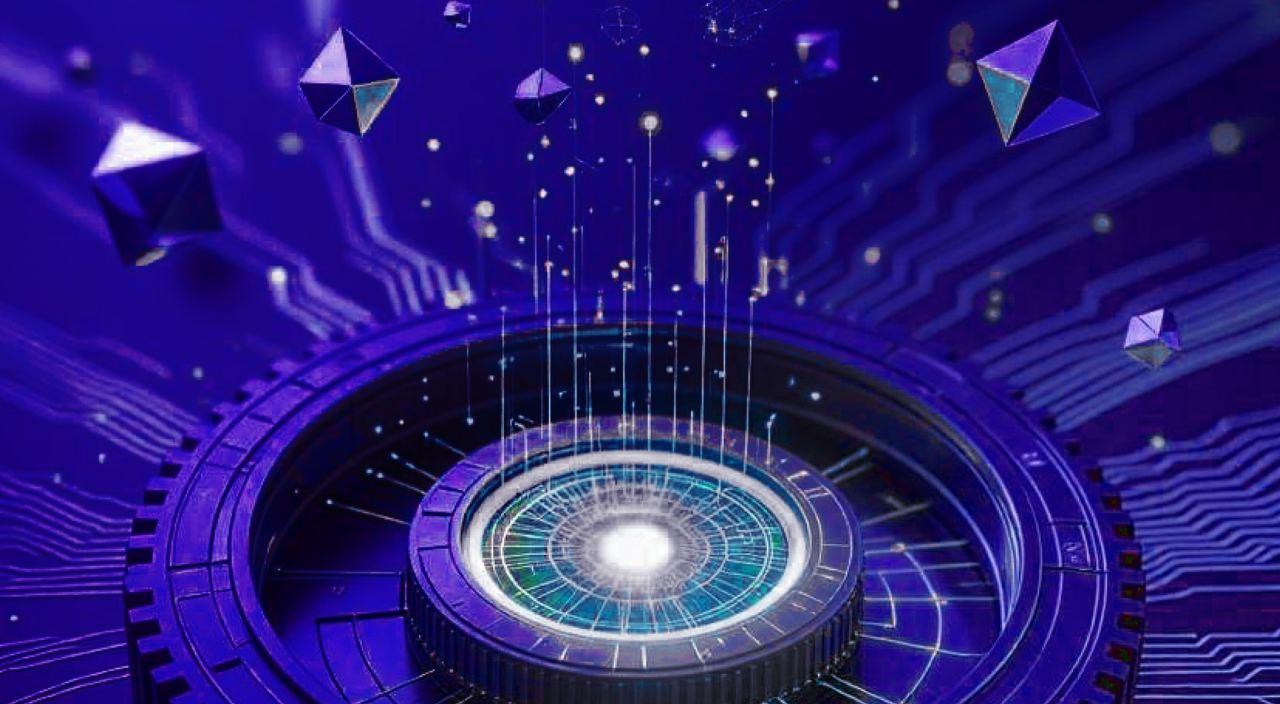Summary
Biotech organizations, especially BioDAOs such as VitaDAO, benefit from innovative intellectual property (IP) tooling to increase the transferability, auditability, and liquidity of IP. To that end, Molecule created intellectual property non-fungible tokens (IP-NFTs) to enable anyone to hold IP and research and development (R&D) data rights securely on Ethereum.
Gain-of-function research into IP-NFTs had led to a system for further tokenizing them into IPTs. Mintable only by IP-NFT holders, IPTs are an extension of the legal and smart contracts which make up IP-NFTs.
IPTs represent memberships in an IP pool attached to an IP-NFT. They empower their members to self-organize and jointly develop, validate, license, and sell IP and R&D data assigned to the owner of an IP-NFT.
Below, members of Molecule’s legal team describe: (1) IP pooling, (2) the mechanics of creating an IP pool, (3) the rights and responsibilities of IP pool members, and (4) key regulatory themes of antitrust, freedom, securities, and existing IP market challenges.
IP pooling
An IP pool is a set of IP-related resources shared for the benefit of a community. IP pools are powerful tools widely recognized as being pro-competitive, efficient, and in the public interest.
IP pools already exist all around us:
- inside corporations, where employees regularly create IP and exchange data and inventions with each other for collective benefit;
- among biotech firms, where patent pools are administered to solve public health crises (e.g., Medicines Patent Pool);
- in software development, where nearly every tech company uses and generates open source software; and
- with artists and creators, who have licensed over 2 billion works under Creative Commons licenses.
By creating tokenized IP pools using IPTs, BioDAOs can cooperatively manage their collective IP, co-governing its development and commercialization. Pool members’ rights can be limited by rules set through token holder governance such as requiring know-your-customer (KYC) disclosures and non-disclosure agreement (NDA) signatures in order to access sensitive data.
IPTs use adhesion contracts to attach rights to tokens. Widely used in tech as terms of use, in crypto adhesion contracts are token wrapper agreements and IP licenses, e.g. the CryptoPunks Terms. Adhesion contracts adhere to IPTs, imbuing token holders with IP rights.
The mechanics of creating an IP pool
The first step in creating an PT pool is minting an IP-NFT.
When minting an IP-NFT, a user attaches a legal contract to a smart contract, such as a sponsored research agreement granting rights to IP and R&D data from scientific research. This is done using mint.molecule.to, which generates a NFT denoting ownership on a distributed ledger.
The next step is minting IPTs using the IP-NFT. To do so, the IP-NFT owner uses their token to transact with a second smart contract that enables the IP-NFT owner to mint new tokens: IPTs.
IPTs are fungible tokens unique to their parent IP-NFT. For example, IPTs of VitaDAO’s “Discovering Novel Autophagy Activators’’ IP-NFT funding the Viktor Korolchuk Lab at Newcastle University will be different from IPTs of VitaDAO’s ApoptoSENS IP-NFT funding Amit Sharma’s work on Senolytic CAR-NK Cells.

The rights and responsibilities of IP pool members
IPTs are memberships in an IP pool governed by the Free Association of IPTs Membership Agreement ("Membership Agreement"). The Membership Agreement is an adhesion contract giving token holders the following rights and responsibilities:
- Governance: Token holders have the right to participate in the governance of the IP-NFT and its development. This includes voting on proposed licenses and use of proceeds from the IP-NFT.
- Access to Intellectual Property: Token holders have access to relevant data and IP arising from the development of the IP-NFT, with KYC/NDA required (unless otherwise governed by the token holders) to access sensitive data. This is necessary for due diligence and to govern the development of the IP-NFT intelligently. However, this does not grant any license to the IP.
- Duty of Care: Token holders have a Duty of Care to honor, support, and adhere to the terms and conditions of the Membership Agreement, including any governance agreement made pursuant to it.
- Confidentiality: Token holders must not, without consent, use or disclose any confidential information or IP for any purpose or attempt to sell or register any Confidential Information, IP, or R&D data rights developed through their participation in the token holder group.
For the legal contract to adhere, token holders encounter and agree to it in several places: at the point of purchasing their IPTs in the original sale, when voting with their IPTs in governance decisions, when accessing private data rooms for the IP pool, and when claiming any proceeds from licensing or sale of the IP-NFT, IP, and R&D data.
These points of encounter help to ensure that the duty of care over the IP pool and its governance is upheld prior to any token holder being able to claim proceeds. For example, in the event of a bad actor, the IP-NFT owner can challenge the right of the actor to receive any proceeds in view of the bad actor’s failure to uphold a reasonable duty of care.
Holders of IPTs control the IP licensing function of the IP pool. Free to govern their IP pool and the terms upon which IP and R&D data in the IP pool gets distributed, holders could vote to issue a license for a drug patent to a pharmaceutical company, voting on the license terms and the distribution of proceeds from licensing or sale of the drug, as well as the conditions for distribution, such as KYC and accreditation requirements for people to claim them.
Key Regulatory Themes
In this final section, we delve into the three key regulatory themes pertaining to the use of IPTs in IP pools: antitrust, freedom, and securities. We conclude by reviewing how IPTs can help solve existing IP market challenges.
Antitrust
The history of antitrust action in IP pooling goes back as far as the Sewing Machine War of the 1850s, when manufacturers pooled patents to gain market power over one of the earliest mass-manufactured machines. Regulators of the Sewing Machine War found that the manufacturers’ pool of sewing machine technology patents slowed the pace of innovation in the market.
Today, regulators' default assumption is actually the inverse: that IP pooling creates market efficiencies wherever it’s deployed. In fact, numerous IP case studies have shown that aggressive individual IP ownership, rather than pooled IP ownership, stifles innovation and creates anti-competitive markets which harm patients through higher costs of drugs. Pooled IP ownership can have pro-competitive effects that benefit patients and promote innovation. For example, IP pooling through open-source software standards like Linux and Apache have contributed to the growth of the internet and lowered costs for web developers, benefitting web users. In biotech, this means faster paths to market and lower costs for patients.
In an IP pool created by the owner of an IP-NFT minting IPTs, holders of IPTs control the licensing function as well as proceeds distribution. Together, IPT holders program the terms upon which IP, R&D data, and economic proceeds from the IP-NFT gets distributed. In order to prevent bad actors from accessing the pool, IPT holders can govern in access restrictions, such as KYC and NDAs, for their pool-controlled IP and R&D data.
Freedom
IP pooling is an exercise of freedom of contract that requires no special permits or governmental registrations. It also advances the purpose of the IP system, which in the United States is to promote “Progress.” The Progress Clause of the Constitution (also known as the Copyright Clause or the Intellectual Property Clause) predicates the existence of an IP system on its purpose of “promot[ing] the Progress of Science and useful Arts.”.
The Progress Clause recognizes that IP rights are not absolute and that they must be balanced against the public interest in developing culture, innovation, and scientific knowledge. IP pools promote this balance by encouraging collaboration and the sharing of knowledge and resources, which can lead to greater innovation and more broadly accessible technologies built for the public good.
Securities
In the development of the legal architecture of IP-NFTs and IPTs, we engaged with three independent law firms for their professional assessments. According to their evaluations, it is likely that in jurisdictions such as the U.S. and Switzerland, IP-NFTs would not be classified as securities. However, they indicated that IPTs could potentially fall under securities classification if they were to grant hard-coded economic rights to proceeds from IP-NFTs.
As a result, we designed IPTs to serve as memberships in IP pools. Members must govern in economic rights, carefully weighing the options in doing so as is happening today in discussions around distributions of protocol proceeds to holders of UNI tokens from the decentralized exchange Uniswap, ARB tokens from Ethereum layer 2 Arbitrum, and LDO tokens from liquid staking protocol Lido.
Memberships in IP pools have not, to our knowledge, been treated as securities in any given jurisdiction worldwide. Despite their design as memberships in IP pools, IPTs face regulatory uncertainty around cryptographic tokens. Great minds argue that cryptographic tokens are by their very nature not securities. Rather, securities transactions happen when people make investment contracts for them. For example, in the famous Howey case the underlying things being sold were oranges. Oranges are not securities, but the way that shares of the orange harvests were being distributed and promoted by W.J. Howey Co. created investment contracts. Investment contracts are securities. Whisky barrels have also been considered securities when sold as investments.
Therefore, anyone who mints IPTs from an IP-NFT should be aware before distributing them that whether they qualify as securities will depend on the manner of distribution in a case by case analysis. Minters should use caution regarding token marketing, consider excluding U.S. participants from any token sale, and if selling IPTs as investments then access the markets only using securities exemptions, as well as seek advice from independent legal counsel.
Existing IP market challenges
The existing IP system is plagued by market challenges. Low-quality patents, IP trolls, efficient infringement, and unethical commercialization of IP have led to a choir of lobbying for IP reform. Competing interests among lobbyists from Big Tech and Big Pharma have created regulatory paralysis. 84% of patents that have been submitted to the US Patent Trial and Appeal Board (PTAB) and undergone full review are found to be at least partially invalid. When there is valid, enforceable IP, inventors often lack any moral rights to ensure that their drugs are commercialized ethically.
IPTs are designed to solve existing IP market challenges. Here are some examples of how:
- Empower patient community to co-govern drugs to ensure they get commercialized in the public interest (e.g. price caps on drugs and therapies, equal pay and commitments to ethical supply chains, fair compensation to inventors/researchers, etc.)
- Co-manage and co-fund IP enforcement necessary to prevent “efficient infringement” by powerful market actors (e.g., BigTech and BigPharma wielding dominant market power to infringe IP without meaningful consequences)
- Utilize on-chain transparency in IP ownership and licensing to decrease due diligence costs in IP transactions (e.g., Smart Transactions).
- Operationalize the theoretical benefits of decentralized patent examination and IP validation proposed by legal academics (e.g., Decentralized Patent System)
- Utilize established collective-action IP risk-management strategies such as anti-troll license-on-transfer IP encumbrances (e.g. LOT Network) and defensive patent aggregation (e.g. RPX)
- Use decentralization of IP and R&D data to break down IP silos that create duplicative scientific research and inefficient IP development
As leaders question whether distributed ledger technology can be used to create economic benefits, one need not look any further than tokenized IP. Tokenized IP unlocks liquidity and transparency in a historically opaque market.
IPT-enabled pools distribute governance, decentralizing control over the IP licensing function and distributions of proceeds, unlocking a new means for efficiently managing biotech IP risk, facilitating early stage capital formation for scientific research, and empowering people to have more power in therapeutics development.
In conclusion, the innovative use of IP-NFTs and IPTs presents a significant opportunity for biotech organizations like BioDAOs to securely and efficiently manage intellectual property. These digital tools offer a promising solution to the challenges plaguing the current IP market, fostering collaboration, competition, and innovation. The introduction of tokenized IP pools can empower communities to collectively govern and commercialize their IP, contributing to greater transparency, liquidity, and returns on investments. However, the path forward requires careful navigation of potential regulatory uncertainties, particularly around securities law. As we continue to explore and refine these technologies, the future of IP management in the biotech sector looks more decentralized and democratized.



















